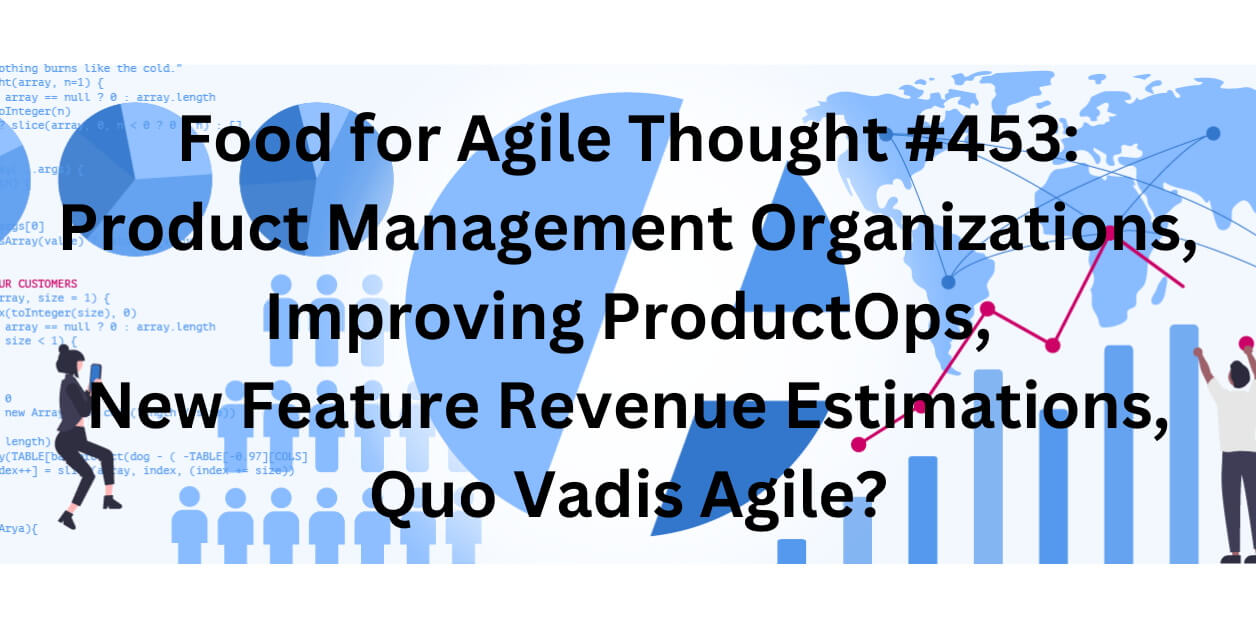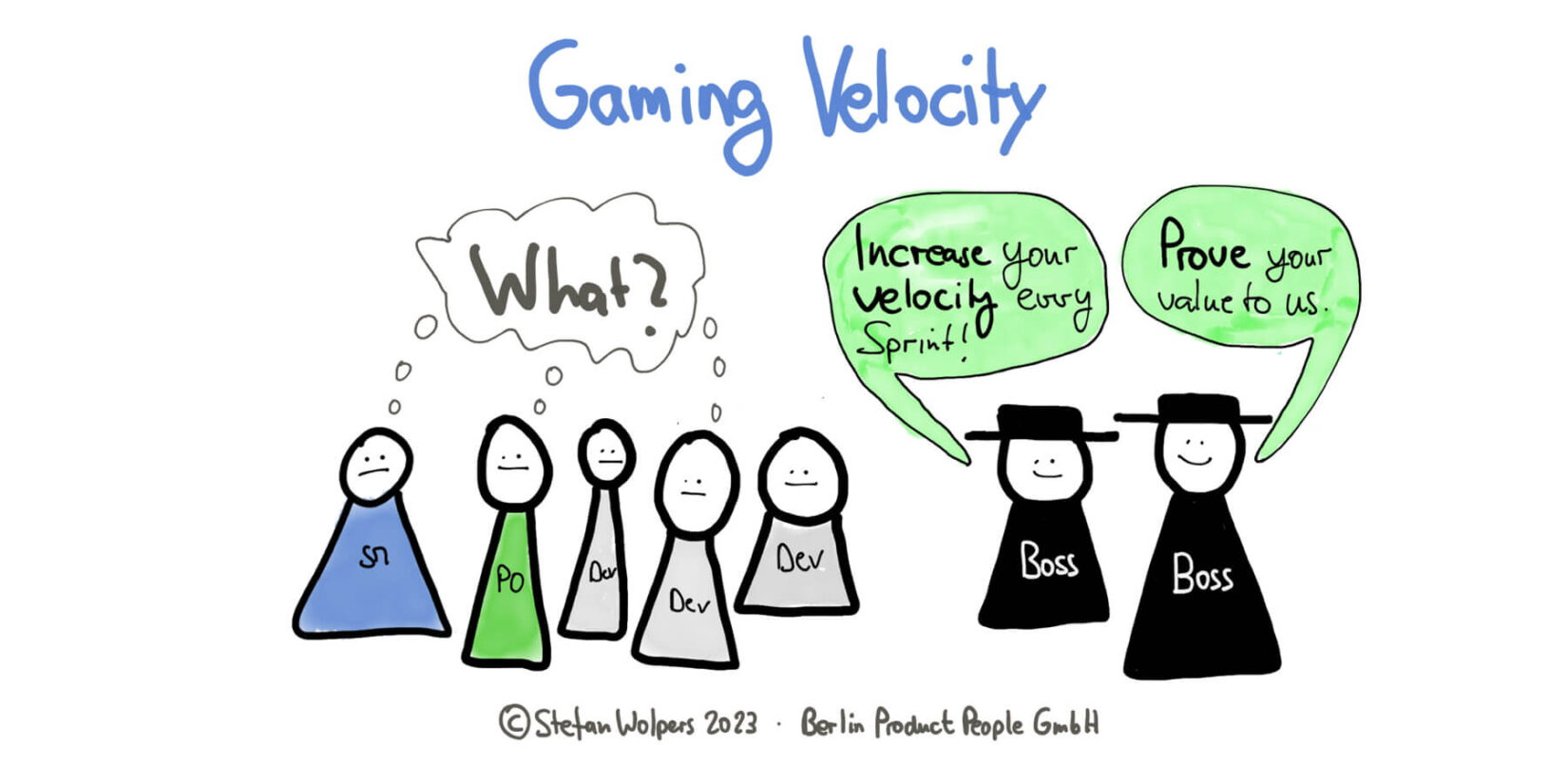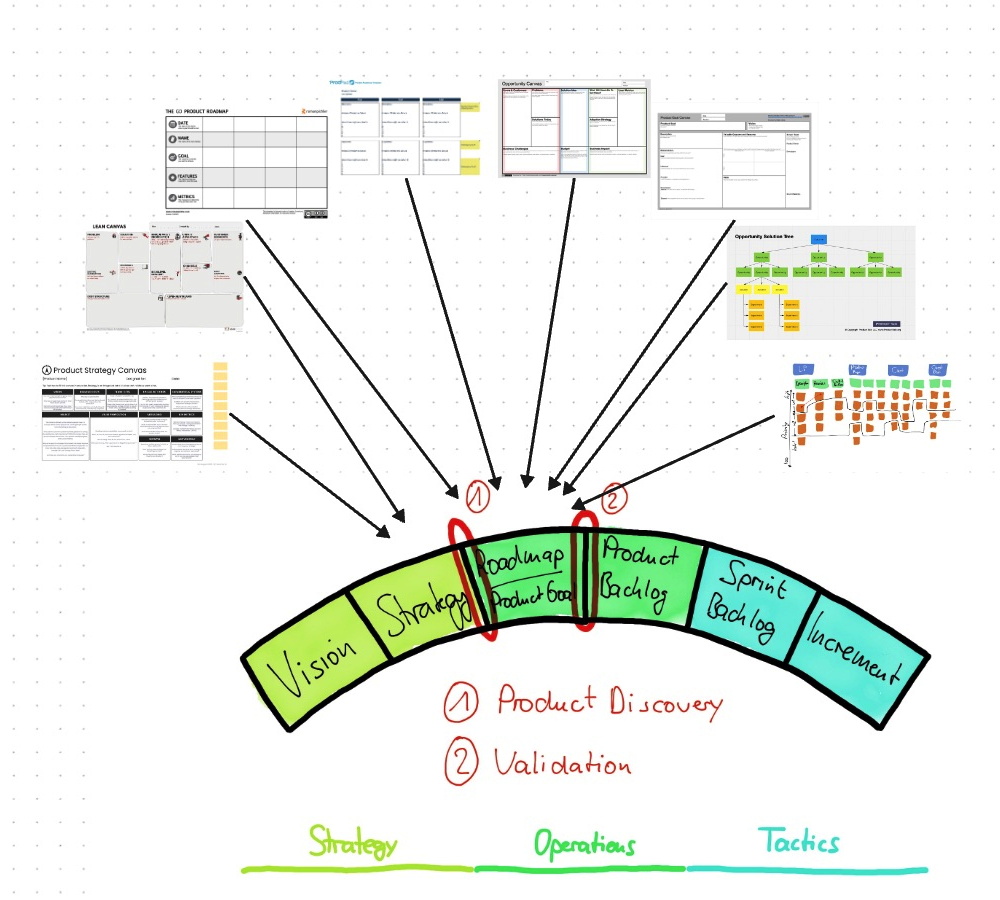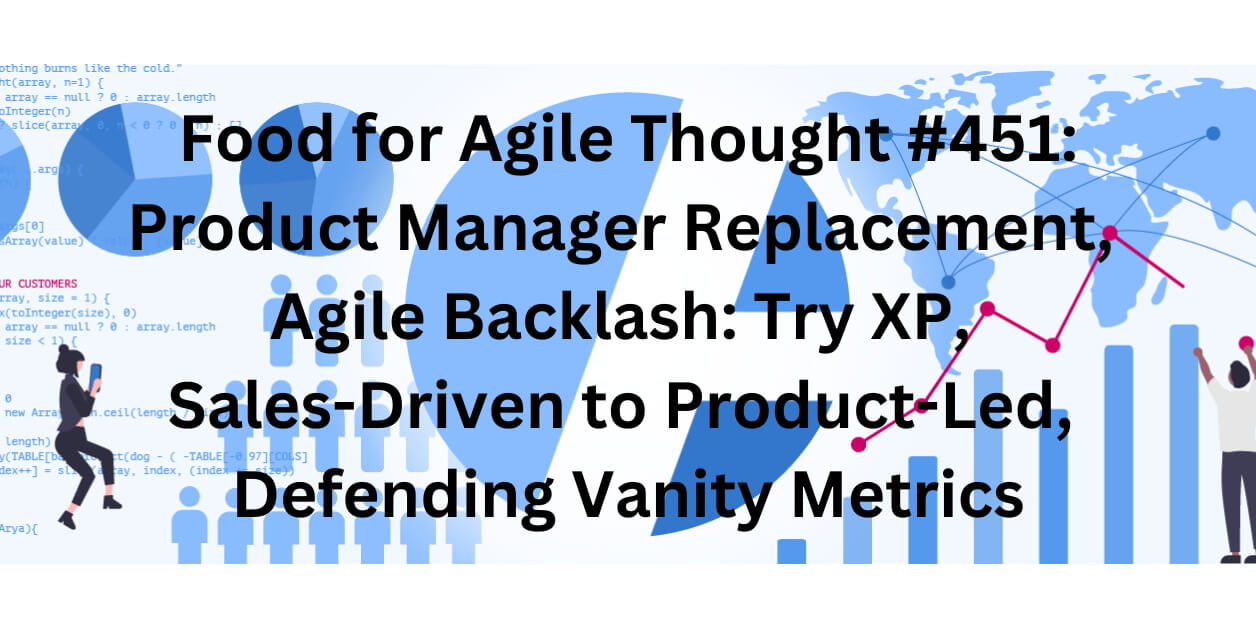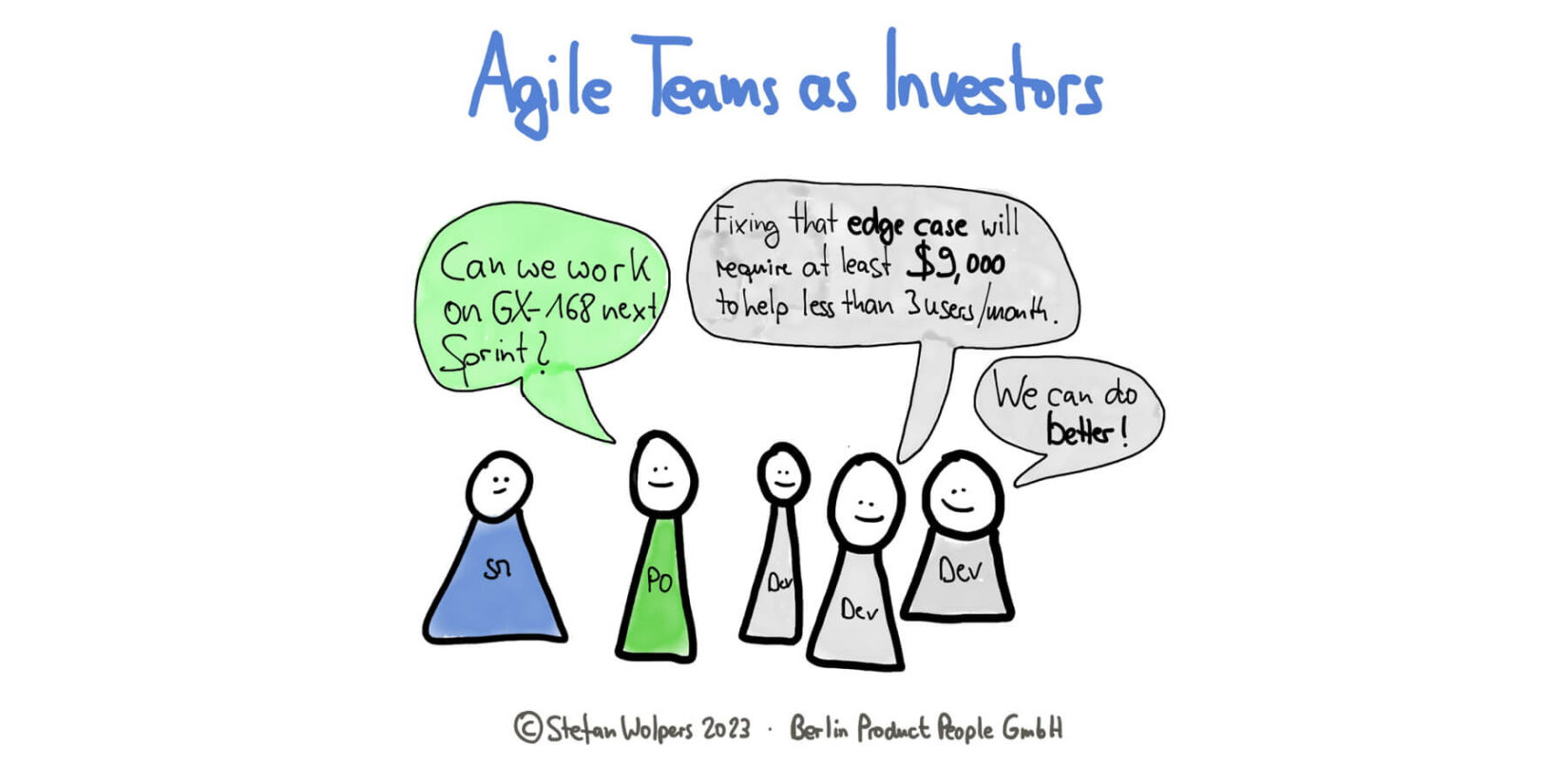TL; DR: Product Management Organizations — Food for Agile Thought #453
Welcome to the 453rd edition of the Food for Agile Thought newsletter, shared with 42,652 peers. This week, we feature insights from Melissa Perri, who provides a framework for robust product management organizations focusing on alignment, efficiency, and continuous improvement. Stefan Lindegaard warns about Organizational Debt Syndrome and the need for proactive leadership to maintain agility, and Jennifer Riggins reveals a study highlighting developers’ lost productivity due to management inefficiencies, stressing better communication. Also, Evan Leybourn discusses the future of Agile, shifting from anecdotes to data-driven insights. At the same time, Terry Danylak shares strategies to move from firefighting to proactive management, enhancing productivity and workplace health.
Then, Itamar Gilad critiques the “user-needs-first” approach, advocating for a flexible strategy that aligns ideas with company goals for high-impact products. John Cutler suggests that percentage allocations obscure priorities and advocates prioritizing based on value and urgency, and Jon Odo provides five tips for trimming Product Backlogs, emphasizing removing outdated and unclear items to boost team efficiency. Moreover, Zach Dunn highlights the pitfalls of overestimating revenue from sales feedback and offers strategies to avoid these mistakes when prioritizing features.
Lastly, Johanna Rothman advocates for continual planning over quarterly planning to help agile teams adapt and deliver maximum value. Jenny Wanger introduces a product operations tool using process maps to diagnose inefficiencies and improve workflows, and Chris Matts explains Karl Weick’s Sensemaking framework for better organizational dynamics and collaboration. Jurgen Appelo presents 32 key concepts from systems thinking and complexity theory, highlighting their importance in Lean and Agile approaches. Finally, Rory Sutherland discusses marketing and behavioral science with Lenny Rachitsky, focusing on the role of psychology, product success paradoxes, and the pitfalls of metrics-driven workplaces.
